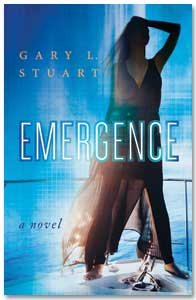Is it a novel? A true story? A false story? Are the characters real or made-up? If the characters are real people, can you call it a novel?
The answers to all five questions are “yes.” What a fine literary world we live in. That’s why were going to look at the ethics of writing real-person fiction.
Madame Wiki says, “Real person fiction or real people fiction (RPF) is a genre of writing similar to fan fiction, but featuring celebrities or other real people. . . Before the term ‘real person fiction’ came into common usage, fans came up with a variety of terms, which are still used for specific genres or cultural practices in the RPF community; for example, musicfic, popslash, or actorfic. The genre includes stories about actors, athletes, comedians, historical figures, musicians, newsworthy people, and reality show contestants among others, as well as fiction about the fans themselves.”[1]
Those “cultural practices” end in “fic.” Fic on them, I’d say. Alternatively, I could say the genre is a fine kettle of fish, but that phrase belongs to the mid-18th century novelist, Henry Fielding.[2] He used the phrase to mean a “muddle.”
This blog post is prompted by the 2020 release of a new “novel,” with the instantly recognizable title, Rodham.[3] It is a muddle by any standard. Hillary Rodham Clinton married William Jefferson Clinton on October 11, 1975. They are still married, famous, and rich. But things change. Now the real Hillary can read a novel about herself that claims Bill never married her. Should she believe it? If not, is it something to laugh about, cry, or live the story, not the actual life? It’s the latest in muddle fiction. It’s fake, but not the kind Trump peddled. It will make money, just like the nonfiction Bill has, even though in the book, he didn’t marry Hillary.
So, what ethical norms apply to writing RPF novels? Medium.com has a posting headlining this inquiry. “The Dubious Ethics of “Real-Person Fiction.”[4] The explanation is itself dubious. “Thanks to sites like Tumblr and books like 50 Shades of Grey, fanfiction is now a mainstream phenomenon that is tolerated, if not embraced, by many creators. But while pairing Pikachu with Lord Voldemort is one thing, the genre gets more dubious when you start ‘shipping’ (a convention where fans pair characters that are not canonically dating or sometimes even in the same universe) real-life people.”
At the drafting stage, I was tempted to pose questions about the ethics of “shipping.” I have no idea what canonically dating might be, either in or out of the same universe. Apparently, “shipping” (a word made up from the word “relationship”) is what some fans want some writers to do—pair two or more real-life people in a romantic relationship. The ethical answer is “stupid is as stupid does.”
Consent is the central ethical default. Trailing not far behind is the real person mucked inside the RPF’s ownership of his or her public identity. Both invoke legal issues. From an ethical perspective, they implicate writers’ basic obligations to people who are harmed, or at least embarrassed, to find themselves in a publicly available book on Amazon.
Fanlore.org is a communally sourced history of fanfiction. It “records both the history and current state of fan communities: fan works, fan activities, fan terminology, individual fans and fannish-related events.”[5] The first hint of ethical concern is included in its principal guideline: “Each fannish voice is valid and valuable; there is no single ‘truth’ or history to fandom, but rather, each perspective contributes to and demonstrates a rich and diverse heritage. This collective history is not dictated or owned by a single person, author or organization: it belongs to fan communities on the whole.” That’s their legal right—to declare their collective history as something owned by their fan communities. Ethically, it’s always dubious, when a character’s public identity is borrowed, stolen, or made up.
It’s possible, but difficult, for celebrities to copyright or trademark their personas. But that does not mean they are not harmed by fanfiction and the seamy nature of RPF. The genre exists because it’s labelled as fiction, read like fiction, but is a lie. Hillary did marry Bill. Legality is debatable, but ethicality is not. RPF’s fail even the faintest smell test: taking unfair advantage of another person’s name and life.
 I am an author and a part-time lawyer with a focus on ethics and professional discipline. I teach creative writing and ethics to law students at Arizona State University. Read my bio.
I am an author and a part-time lawyer with a focus on ethics and professional discipline. I teach creative writing and ethics to law students at Arizona State University. Read my bio.
If you have an important story you want told, you can commission me to write it for you. Learn how.
[1]https://en.wikipedia.org/wiki/Real_person_fiction
[2] https://idioms.thefreedictionary.com/a+fine+kettle+of+fish
[3] https://www.amazon.com/Rodham-Novel-Curtis-Sittenfeld/dp/0399590919
[4] https://medium.com/s/darkish-web/the-dubious-ethics-of-real-person-fiction-5cd6bd498c16






 I am an author and a part-time lawyer with a focus on ethics and professional discipline. I teach creative writing and ethics to law students at Arizona State University.
I am an author and a part-time lawyer with a focus on ethics and professional discipline. I teach creative writing and ethics to law students at Arizona State University.  My latest novel is Emergence, the sequel to Let’s Disappear.
My latest novel is Emergence, the sequel to Let’s Disappear.  If you have an important story you want told, you can commission me to write it for you.
If you have an important story you want told, you can commission me to write it for you.